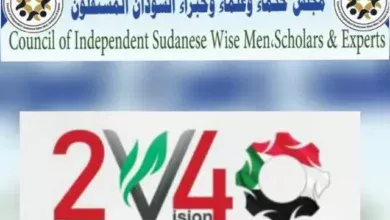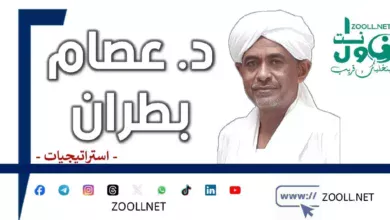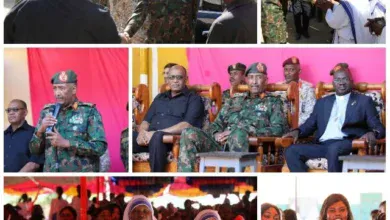Lessons learned from China's modernization journey – Something for the motherland – ✍️ Mr. Salah Ghariba

I participated in an important event represented by a conference by engineer Essam El-Din Sharaf, former Egyptian Prime Minister, entitled “Modernization with Chinese characteristics: from dream to reality, from local to global”, organized by the Society Egyptian engineers. via Zoom. The conference addressed China's exceptional journey towards modernization, highlighting the factors that contributed to its success and how Sudan can benefit from this pioneering experience.
The conference began with a historical journey through time, during which engineer Sharaf painted a picture of China in the past, when it suffered from poverty and backwardness. However, China did not give in to these circumstances, but instead began a difficult journey towards modernization, investing in its enormous potential and the determination of its people.
Engineer Sharaf stressed that China's success was not a coincidence, but rather the result of a deliberate strategy followed by the Chinese government, characterized by unique characteristics, emphasizing the economic development of the China, by placing economic development at the top of its priorities. encouraging foreign investment, developing infrastructure and implementing open trade policies, which led to considerable economic growth rates, and the leadership role of the state played a central role in steering the economy and the implementation of modernization strategies, establishing the necessary measures. policies and procedures, providing support to local businesses, creating an environment conducive to investment and committing to social justice, China was therefore keen to distribute them… The fruits of economic development are for all members of society, through the fight against poverty and social measures. Social programs made it possible to improve the standard of living of the population while preserving its cultural identity and ancient traditions, while adopting modern technology and taking advantage of the experiences of other countries, which allowed it to achieve to a balance between economic progress. and preserve its values and principles.
Engineer Sharaf not only provided an accurate analysis of the Chinese experience, but also presented practical suggestions that Sudan could benefit from in its own modernization journey, including the development of a comprehensive national modernization strategy. Sudan needs to develop a comprehensive national modernization strategy that takes this situation into account. Sudan needs to strengthen the role of the private sector in the modernization process, improving the investment environment, encouraging entrepreneurship and attracting locals and foreigners. investment and investment in education and scientific research. Sudan must invest in education and scientific research, to develop skills and new innovative technologies, which will help strengthen its competitiveness and preserve Sudanese cultural identity. ancient traditions, while adopting modern technology and learning from the experiences of other countries, which helps it modernize while preserving its values and principles.
The conference sparked an important discussion on the Chinese model of modernization and the extent to which it can be applied in Sudan. Many participants pointed out that China's modernization model may not be suitable for all countries and that each country has its own needs and circumstances.
However, all agreed that China's experience offers valuable lessons for Sudan in its modernization journey, and that learning these lessons while taking into account Sudan's particular needs and circumstances can pave the way for tangible progress. in various fields.
Engineer Essam El-Din Sharaf's conference proved to be a fruitful platform for exchanging ideas and experiences on the challenges of modernization in Sudan. The conference provided a careful analysis of the Chinese experience and opened the door to an important debate on how to benefit from this experience in the Sudanese context.
Source link






